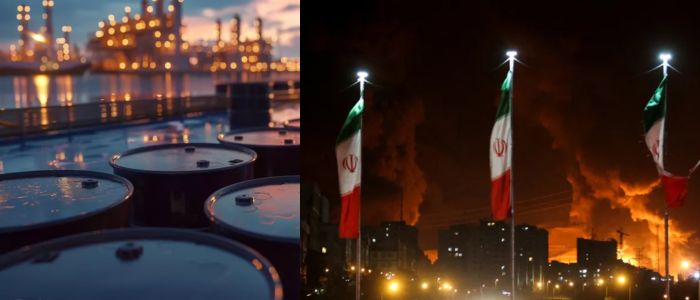Oil Benchmarks Rise as Tensions Climb
Oil soared on Tuesday amid escalating tensions between Israel and Iran. Brent North Sea Crude gained 4.4 percent to $76.45 per barrel and West Texas Intermediate was up 4.3 percent to $74.84 per barrel. Both benchmarks rose around 0.5 percent in early Wednesday trade, to extend gains of more than 2 percent in the previous session when prices jumped on evacuations in the U.S. Gulf of Mexico that cut supply there.
The increase follows a weekend of Israeli airstrikes on key oil and gas facilities in Iran beginning on Friday. Bombings struck critical targets such as the South Pars gas field, a Fajr Jam gas plant, a Shahran oil depot, and a Shahr Rey oil refinery.
So far, there has been little effect on the flow of energy globally, notwithstanding the attacks. Yet fears that the fighting could escalate or draw in American military action have sent global markets into turmoil.
U.S. Stocks Fall, Trump Raises Pressure on Tehran
As energy prices increased, U.S. stock markets reacted negatively to the increasing geopolitical risk. The S&P500 Index slid 0.84% while the Nasdaq Composite lost 0.91% on Tuesday, as investors took a back seat.
In heated exchanges, President Trump issued unreserved threats, calling for “unconditional surrender” from Tehran. He also suggested that military action against Iran’s Fordow uranium enrichment site could be on the table, increasing global alarms.
In a message addressed to the supreme leader of Iran, Ayatollah Ali Khamenei, Trump declared that the U.S. already knew the general’s whereabouts, describing him as “both hated and feared like no other, but had taken no action to remove him — “at least for now.” It was another step in the escalating rhetoric.
Iran israel conflict sits on the world’s third-largest stores of crude oil and the second-largest reserves of natural gas. It pumped about 3.99 million barrels of crude oil a day in 2023, or about 4 percent of global supply, according to U.S. data.
Vulnerable Strait of Hormuz and Export Routes
The stakes are also global due to Iran’s strategic position astride the Strait of Hormuz. The waterway is vital for global energy transport as it handles about 20 to 30 percent of the world’s oil exports. About 95 percent of Iran’s crude exports flow through the Kharg Island terminal, which has yet to be hit in the Israeli strikes.
Some analysts have said that iran Israel conflict could consider attacking Iran’s oil exports in the future, to try to weaken the Iranian regime, in spite of the global reaction and the inevitable surge in energy prices.
As the situation develops, the world is keenly watching the situation, well aware that it can have far-reaching implications for the global energy markets and political stability.
Top

Oil prices soar as Israel-Iran conflict rattles markets

Tensions continue to spike in the Israel-Iran crisis, spurring extreme volatility across the global energy and financial markets. Fears that the conflict could escalate, and perhaps draw the United States into a wider confrontation, are helping to feed concerns of greater instability, pushing up oil prices and dragging down U.S. stock indexes.











